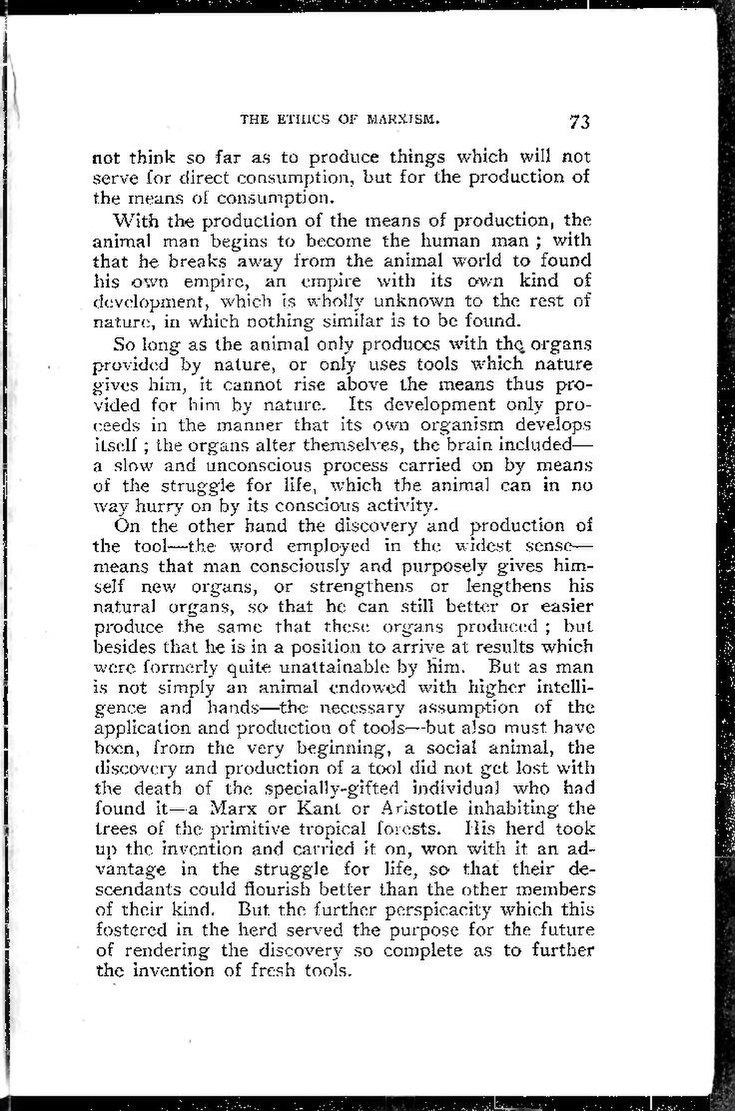not think so far as to produce things which will not serve for direct consumption, but for the production of the means of consumption.
With the production of the means of production, the animal man begins to become the human man; with that he breaks away from the animal world to found his own empire, an empire with its own kind of development, which is wholly unknown to the rest of nature, in which nothing similar is to be found.
So long as the animal only produces with the organs provided by nature, or only uses tools which nature gives him, it cannot rise above the means thus provided for him by nature. Its development only proceeds in the manner that its own organism develops itself; the organs alter themselves, the brain included—a slow and unconscious process carried on by means of the struggle for life, which the animal can in no way hurry on by its conscious activity.
On the other hand the discovery and production of the tool—the word employed in the widest sense—means that man consciously and purposely gives himself new organs, or strengthens or lengthens his natural organs, so that he can still better or easier produce the same that these organs produced; but besides that he is in a position to arrive at results which were formerly quite unattainable by him. But as man is not simply an animal endowed with higher intelligence and hands—the necessary assumption of the application and production of tools—but also must have been, from the very beginning, a social animal, the discovery and production of a tool did not get lost with the death of the specially-gifted individual who had found it—a Marx or Kant or Aristotle inhabiting the trees of the primitive tropical forests. His herd took up the invention and carried it on, won with it an advantage in the struggle for life, so that their descendants could flourish better than the other members of their kind. But the further perspicacity which this fostered in the herd served the purpose for the future of rendering the discovery so complete as to further the invention of fresh tools.
